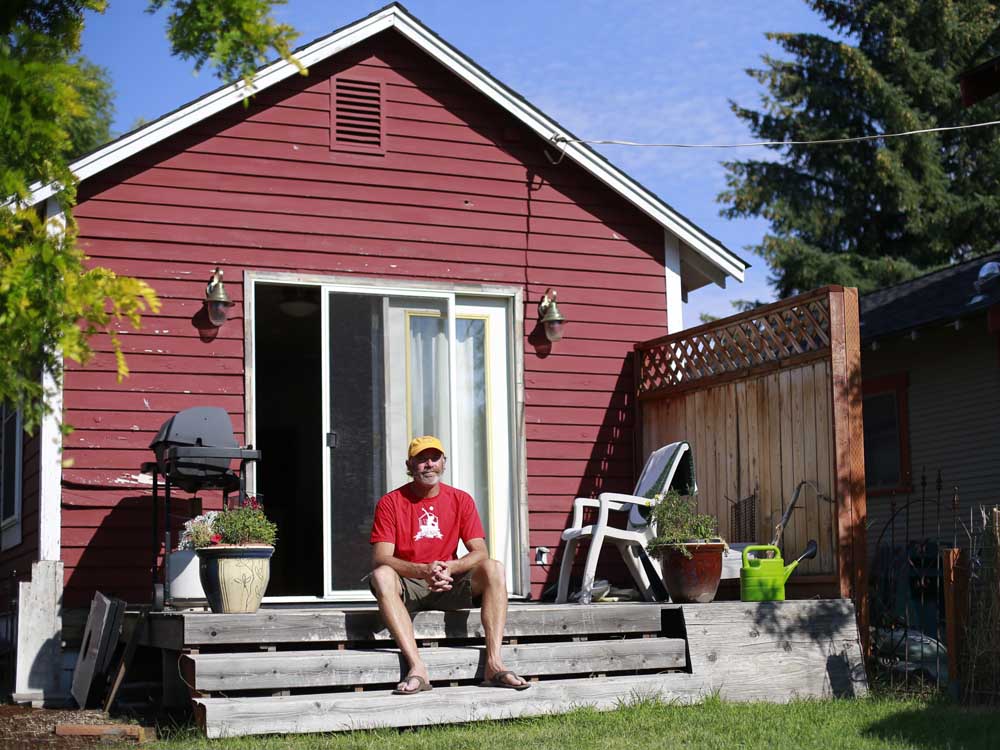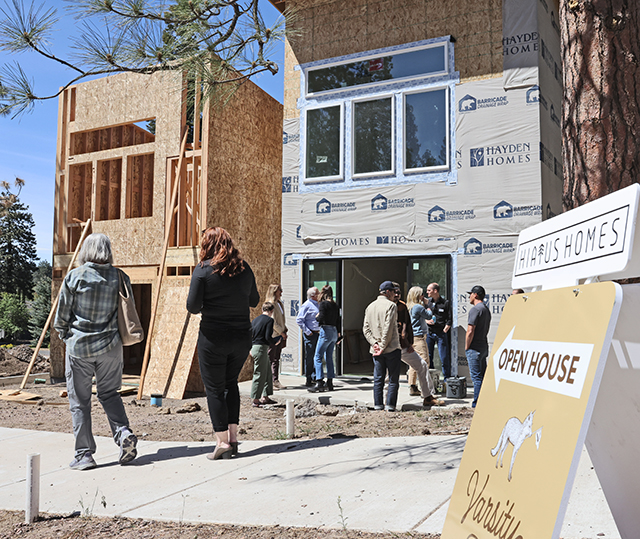Slow progress on Bend’s vacation rental problem
Published 12:00 am Friday, January 23, 2015

- Joe Kline / The Bulletin John Kelly sits last summer on the steps behind his vacation rental home along the Deschutes River in Bend. A volunteer task force meetingThursday night looked at the issue of how many vacation rental homes to allow near non-rental homes. The group's recommendations will have to go to the Bend Planning Commission and then the City Council.
Percentage points and one-half percentage points were haggled over for hours at the latest meeting of a volunteer task force studying vacation home rentals.
The Bend City Council appointed 23 volunteers to revamp the city’s rental policies by late February, with the aim of councilors voting on new rules by March.
The issue heated up last summer, when residents from the River West and Old Bend neighborhoods complained that their neighborhoods were overrun with rowdy vacationers. The committee was selected to balance the interests of residents concerned about livability and those with a stake in the rental and tourism industries.
The goal of Thursday night’s task force meeting, attended by about 10 members of the public, was to come up with recommendations for general land use rules that would govern future rentals. To the consternation of rental critics, any new adopted regulations cannot be retroactively applied to existing rentals. However, the task force will explore avenues by which existing rental permits can expire.
The topics under consideration included limits on the density of rentals in an area, what the permitting process should require and what exactly counts as a rental.
Regardless of what the task force recommends, that proposal will be given to the Planning Commission, which will then make a recommendation to the City Council.
“I’ve got to stress the importance of compromise,” Assistant City Manager Jon Skidmore told the group at the outset.
“Anything we come up with, anything we put in place, would be better than what we have on the books now,” he said.
After about three hours of discussion, compromise was reached by deciding to move ahead with two divergent proposals on the debate’s central issue — what density of rentals should be allowed.
One proposal, which was seen as slightly more lenient toward rentals, would allow 5 percent to 10 percent of houses to be rentals within an area extending 250 feet in any direction from a residential property line. The percentage range was a compromise, as a number of proposals between 5 percent and 20 percent were discussed, including both 7.5 percent and 8.5 percent.
“Right now, when I look out of my house, 20 percent are rentals and 80 percent are real neighbors,” said Spencer Dahl, an Old Bend resident on the task force.
Support for the lower end of the spectrum was most vocally expressed by Stephen Junkins, a River West resident and task force member, who said his block “worked OK at 6 percent.”
To speed up the discussion, the task force agreed to embrace the 5 percent to 10 percent range as one option to present to the Planning Commission. In the Old Bend neighborhood, 5 percent of homes within a 250-foot radius equals about two homes. A typical 250-foot radius in that neighborhood would have just more than 40 homes.
Rex Wolf, a planning commissioner in attendance, noted, “Whatever you do, we’re going to chew it up and maybe even come up with something entirely different.”
In addition to that first recommendation, the task force suggested another, parallel rule on density. The second proposal, which was suggested by Junkins, would allow for one rental within any 250-foot radius. On top of that, the second proposal would put a cap on the ratio of houses that are rentals within any quarter-mile radius of between 5 percent and 10 percent.
“The 250 feet protects the one house from being surrounded, and the quarter-mile protects the whole neighborhood from being overrun,” Junkins said.
The second proposal was criticized for being overly complicated and possibly harder to enforce, with Dahl saying any new regulation needed to be more straightforward.
“We need to put the brass knuckles on,” he said.
The task force addressed other issues with less debate. For example, the group agreed to begin drafting a “good neighbor” policy that could be shown to those who stay in a vacation home rental. Additionally, support was shown for less rigorously regulating rentals in nonresidential areas.
Further decisions, including those on permitting, were unresolved late Thursday night. At stake within the permitting process is who can appeal the approval of a new rental.
The task force is scheduled to meet next on Feb. 5.
— Reporter: 541-633-2160, tleeds@bendbulletin.com






